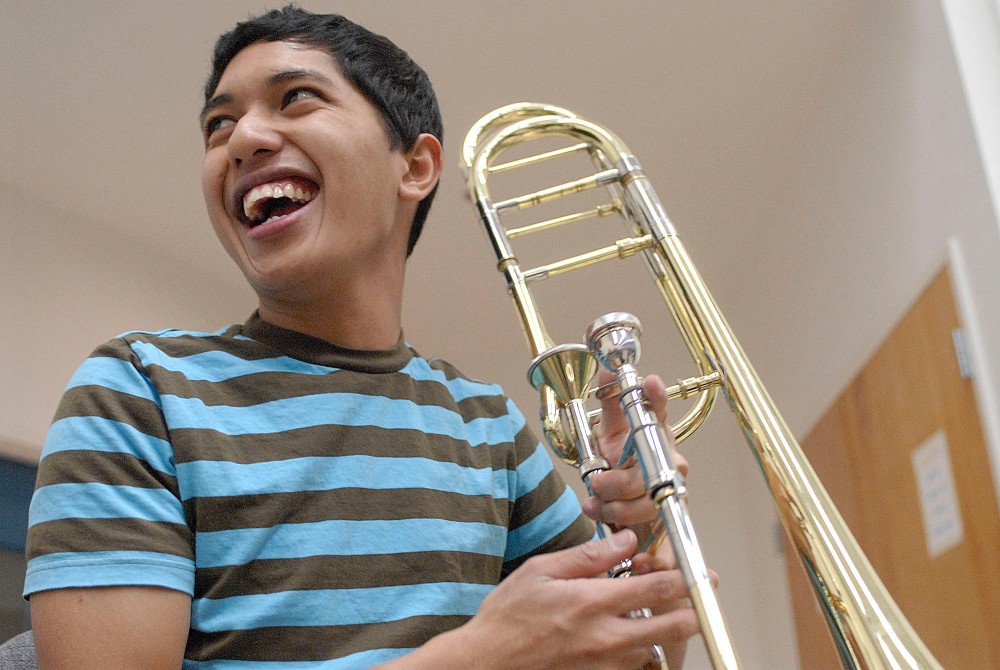If Muhammad Taufik had his way, he would have majored in music. But instead, the University of Minnesota junior in the mathematics and economics departments opens a book full of equations and theories and begins his homework.
The international student from Malaysia said the message from âÄúback homeâÄù is clear âÄî study science, technology, engineering or mathematics, return to Malaysia and contribute to its development.
One third of all undergraduate degrees in STEM fields are earned by foreign-born students in the U.S.
This comes as no surprise to Taufik who said the job security and future prospects in STEM fields leads parents in some countries âÄî especially developing ones âÄî to raise their children to value science and math and place them on an educational path leading straight to these fields.
Taufik likes math. But he loves music. For now, his passion is on hold.
âÄúFrom the time you are in grade school, people have already set the path of your life,âÄù he said. âÄúThereâÄôs no place for arts or music.âÄù
Nearly half of the foreign-born degree holders in the nation are in science and engineering fields, according to an analysis of a 2010 U.S. Census Bureau survey released last month. The survey also noted that three in five foreign-born degree holders in the Twin Cities area studied STEM disciplines.
Students from other countries are more likely than domestic students to earn a degree in these fields. Overall, 33 percent of native-born college graduates studied STEM fields compared to 46 percent of foreign-born college graduates.
âÄúI understand why it has to be this way,âÄù Taufik said. âÄúBut it makes it hard for people like me who canâÄôt see doing this for the rest of their lives.âÄù
âÄòWhy wouldnâÄôt you?âÄô
For Ashish Upreti, the road from his home in Nepal to the University was long and complicated. But he said he takes pride in knowing he made every decision along the way on his own.
He is studying chemical engineering âÄî a field that doesnâÄôt exist in Nepal. But unlike Taufik, he said he is doing what he loves.
For him and most of his friends, excelling in science and math has always been a top priority, he said.
âÄúIn Nepal, people who do well in math and science are viewed as the smart ones, the ones who are going to have a good life,âÄù he said. âÄúItâÄôs kind of an honor.âÄù
Though his parents and community emphasized the sciences and encouraged him to do well, he said he never felt pressured to pursue a certain field, though cultural expectations may have had some part facilitating his passion for science.
âÄúIf you can do this and create a better life for yourself, why wouldnâÄôt you?âÄù he said.
âÄòNobody could stop youâÄô
Like Taufik, Abiel Gebrehiwot has a passion for music. But the physiology student said he never considered making a living out of it.
He said his Eritrean parents wouldnâÄôt be happy if he came home with a liberal or artistic degree, but that isnâÄôt the reason the pre-pharmacy student sticks to the sciences.
His parents always made sure he was doing well in school, especially in math and science, Gebrehiwot said.
For him and most of his friends who are the sons and daughters of African immigrants, he said these fields were emphasized and valued in a way most native students wouldnâÄôt understand.
âÄúThey made sure I was taking math courses and helped me with my work,âÄù he said. âÄúThey always told me how important it would be to my future.âÄù
But they were right and only had his best interests at heart, he said.
âÄúIâÄôm pretty happy, and I wouldnâÄôt go any other way.âÄù
He said it is an attitude ingrained from a young age that most likely contributes to the national statistics. But he adds that he and his friends understand their futures are ultimately in their own hands.
âÄúParents may try to talk you out of [other majors],âÄù he said. âÄúBut if you really want to do something, nobody could stop you.âÄù
âÄòIt can connect peopleâÄô
This semester, Taufik began playing the trombone in the UniversityâÄôs campus orchestra.
Little by little, heâÄôs begun to take music courses. But his education is funded by a scholarship from the Malaysian government that specifies it must be used for the pursuit of a degree in a math or science field.
HeâÄôs hoping to double-major, though. His dream is to one day pursue a graduate degree and research relationships between math and music theory.
But when Taufik calls his mother, sheâÄôs not very interested in his musical endeavors.
He said she always wants to know how heâÄôs doing in his math courses.
Taufik said the pressure is extreme; the first question on his loan and scholarship application was what he planned to study and how it would aid Malaysia in the future.
He said he gave them the answer they wanted âÄî that he could create financial models that would allow the nation to keep up with neighboring Singapore.
But the answer he said he wanted to give and truly believes has more to do with his passion.
âÄúThe universality of music speaks to everyone,âÄù he said. âÄúI believe it can bring unity and beauty to the world.âÄù
He added, âÄúIt can connect people and create a brighter future. I really believe that.âÄù


